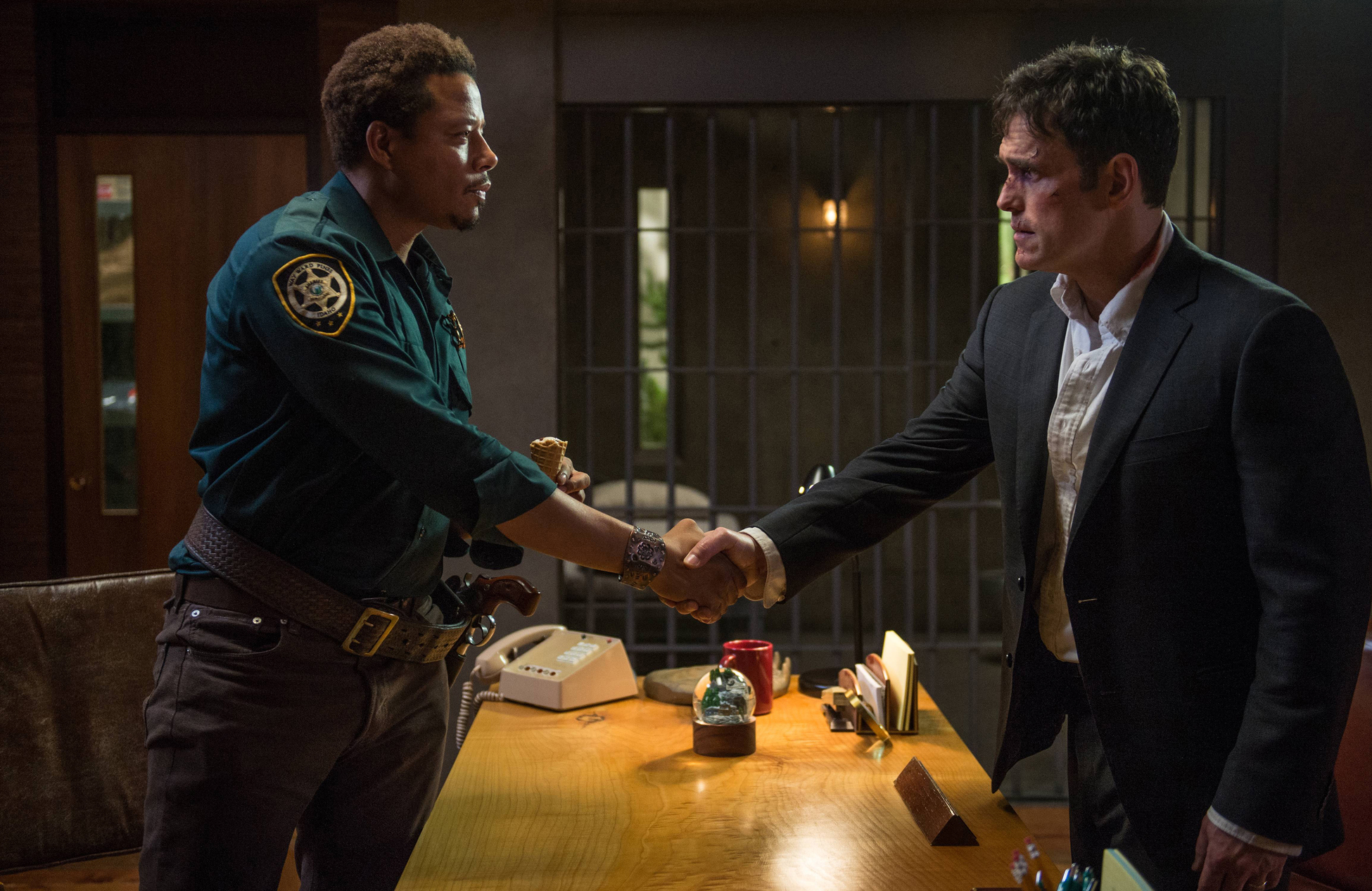
There is a type of series that, for lack of a better name, I’ll call a “dome show”: a sci-fi-flavored mystery, a la CBS’s Under the Dome, in which characters find themselves trapped or stranded in a mysterious, menacing location. The show may recall various TV predecessors, depending on whether the setting is homey (Twin Peaks), mythology-laden (Lost) or totalitarian (The Prisoner). What is this place? Why are they there? And how angry will the explanations, or lack thereof, make us?
As domes go, Fox’s miniseries Wayward Pines (premieres May 14) is well-furnished and nicely populated, if familiar. It doesn’t waste time: Secret Service agent Ethan Burke (Matt Dillon), on a search for two missing agents, gets in a car crash and comes to in a picturesque Idaho town, where people check in but don’t check out.
Burke recovers and finds he has no cell phone, no money, and no option of leaving. To his home office and his family, he’s disappeared with no trace. The locals are friendly but secretive. They’re to give him housing free of charge, but if he asks too many questions, things get uncomfortable with his keepers: menacingly smiling Sheriff Pope (Empire‘s Terrence Howard) and efficient but terrifying Nurse Pam (Melissa Leo). He finds an ally in fellow newcomer/prisoner Beverly (Juliette Lewis)–and disturbingly, one of the agents he was looking for (Carla Gugino), who has gone native.
The series doesn’t waste much time, plunging ahead with unremarkable dialogue but effective plotting, and establishing quickly that no one is safe and you should take little for granted. Seeming holes in the plot–like why Ethan gets away with giving his captors so much guff–end up becoming pieces of the puzzle.
And a puzzle the show is, first and foremost. Fox describes the show as a “psychological thriller,” but there’s not much psychology here so much as mind games, and only enough character development to establish mood. (The show scatters in Twin Peaksian “creepy Americana” quirks and folksy affects, like giving Howard’s creepy sheriff a sweet tooth for rum raisin ice cream. Character-wise, the owls are pretty much what they seem.) Ethan is haunted by the most generic action-hero demons, but Dillon gives him a committed performance.
Wayward Pines is based on a series of novels by Blake Crouch (haven’t read, can’t vouch for the faithfulness), and produced by M. Night Shymalan, whose let’s-twist-and-twist again breed of storytelling fits TV thrillers of the post-Lost era. And twist the show does, so often and dramatically that I can’t talk about much beyond the pilot. (I’ve seen five episodes of ten.)
But if you’re a viewer who watches dome shows with a “Give me the answers, dammit!” mindset, I can reassure you: Wayward Pines explains itself (obligatory “…or does it?”) thoroughly and relatively soon (compared with, say Under the Dome), in a mammoth info-dump of an episode.
I can’t promise you’ll find it convincing–personally, I laughed at the revelations a lot more than I bet the makers intended–but you can’t accuse the show of playing it vague. Wayward Pines is not groundbreaking TV, but it has small pleasures (like seeing Hope Davis play a scary schoolteacher). For a certain fan of a certain kind of summer diversion, it will feel like coming dome.
More Must-Reads from TIME
- Why Trump’s Message Worked on Latino Men
- What Trump’s Win Could Mean for Housing
- The 100 Must-Read Books of 2024
- Sleep Doctors Share the 1 Tip That’s Changed Their Lives
- Column: Let’s Bring Back Romance
- What It’s Like to Have Long COVID As a Kid
- FX’s Say Nothing Is the Must-Watch Political Thriller of 2024
- Merle Bombardieri Is Helping People Make the Baby Decision
Contact us at letters@time.com